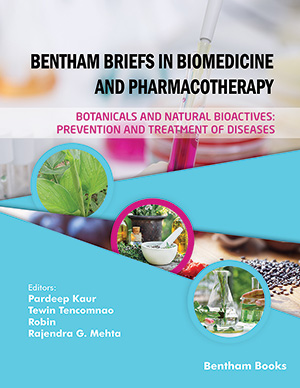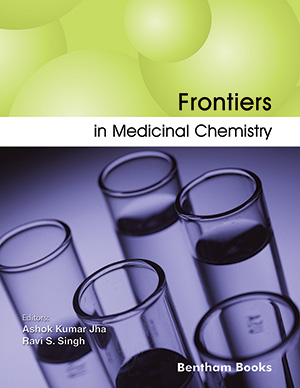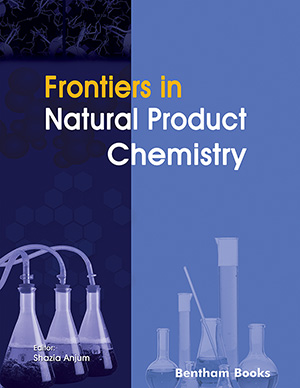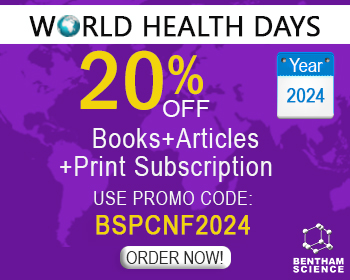Abstract
Anti-angiogenic therapy represents a very promising approach in cancer treatment, as most tumors needs to be supplied by a functional vascular network in order to grow beyond the local boundaries and metastatize. The accessibility of vessels to drug delivery and the broad spectrum of cancers treatable with the same compound have arisen interest in research of suitable molecules, with several, especially targeting the VEGF pathway, entered in clinical trials and approved by the Food and Drug Administration. Despite good results, the major hurdle resides in the limited duration of an effective clinical response before tumors start to grow again. Thus, researchers are looking for different alternative targets for a combined and parallel multi-targeting of angiogenic signaling circuits. Activin Receptor-like kinase 1 (ALK1) is a TGF-β type I receptor with high affinity for the BMP9 member of Bone Morphogenic Proteins superfamily: it is expressed mainly, even if not exclusively, on endothelial cells and seems to be involved in the regulatory phase of angiogenesis. Despite a non-completely elucidated mechanism, the targeting of this pathway, both by a soluble ALK1-Fc receptor developed by Acceleron Pharma and by a fully human monoclonal antibody developed by Pfizer, has achieved encouraging results. After having briefly summarized the state of the art of anti-angiogenic therapy, we will first review existing evidence about the molecular mechanisms of ALK1 signaling and we will then analyse in detail the pre-clinical and clinical data available about these two drugs.
Keywords: ACVRL1, ALK1, Activin Receptor-like Kinase 1, angiogenesis, cancer, antibodies, biologics.
Mini-Reviews in Medicinal Chemistry
Title:Activin Receptor-Like Kinase 1: a Novel Anti-angiogenesis Target from TGF-β Family
Volume: 13 Issue: 10
Author(s): Luca Vecchia, Carla Olivieri and Claudia Scotti
Affiliation:
Keywords: ACVRL1, ALK1, Activin Receptor-like Kinase 1, angiogenesis, cancer, antibodies, biologics.
Abstract: Anti-angiogenic therapy represents a very promising approach in cancer treatment, as most tumors needs to be supplied by a functional vascular network in order to grow beyond the local boundaries and metastatize. The accessibility of vessels to drug delivery and the broad spectrum of cancers treatable with the same compound have arisen interest in research of suitable molecules, with several, especially targeting the VEGF pathway, entered in clinical trials and approved by the Food and Drug Administration. Despite good results, the major hurdle resides in the limited duration of an effective clinical response before tumors start to grow again. Thus, researchers are looking for different alternative targets for a combined and parallel multi-targeting of angiogenic signaling circuits. Activin Receptor-like kinase 1 (ALK1) is a TGF-β type I receptor with high affinity for the BMP9 member of Bone Morphogenic Proteins superfamily: it is expressed mainly, even if not exclusively, on endothelial cells and seems to be involved in the regulatory phase of angiogenesis. Despite a non-completely elucidated mechanism, the targeting of this pathway, both by a soluble ALK1-Fc receptor developed by Acceleron Pharma and by a fully human monoclonal antibody developed by Pfizer, has achieved encouraging results. After having briefly summarized the state of the art of anti-angiogenic therapy, we will first review existing evidence about the molecular mechanisms of ALK1 signaling and we will then analyse in detail the pre-clinical and clinical data available about these two drugs.
Export Options
About this article
Cite this article as:
Vecchia Luca, Olivieri Carla and Scotti Claudia, Activin Receptor-Like Kinase 1: a Novel Anti-angiogenesis Target from TGF-β Family, Mini-Reviews in Medicinal Chemistry 2013; 13 (10) . https://dx.doi.org/10.2174/13895575113139990065
| DOI https://dx.doi.org/10.2174/13895575113139990065 |
Print ISSN 1389-5575 |
| Publisher Name Bentham Science Publisher |
Online ISSN 1875-5607 |
Call for Papers in Thematic Issues
Bioprospecting of Natural Products as Sources of New Multitarget Therapies
According to the Convention on Biological Diversity, bioprospecting is the exploration of biodiversity and indigenous knowledge to develop commercially valuable products for pharmaceutical and other applications. Bioprospecting involves searching for useful organic compounds in plants, fungi, marine organisms, and microorganisms. Natural products traditionally constituted the primary source of more than ...read more
Computational Frontiers in Medicinal Chemistry
The thematic issue "Computational Frontiers in Medicinal Chemistry" provides a robust platform for delving into state-of-the-art computational methodologies and technologies that significantly propel advancements in medicinal chemistry. This edition seeks to amalgamate top-tier reviews spotlighting the latest trends and breakthroughs in the fusion of computational approaches, including artificial intelligence (AI) ...read more
Natural Products and Dietary Supplements in Alleviation of Metabolic, Cardiovascular, and Neurological Disorders
Metabolic disorders like diabetes, obesity, inflammation, oxidative stress, cancer etc, cardiovascular disorders like angina, myocardial infarction, congestive heart failure etc as well as neurological disorders like Alzheimer?s, Parkinson?s, Epilepsy, Depression, etc are the global burden. They covered the major segment of the diseases and disorders from which the human community ...read more
Natural Products in Drug Discovery
Natural products have always been one of the important ways of drug discovery due to their novel skeleton and diverse functional group characteristics. According to statistics, between 1981 and 2019, the FDA approved a total of 1,394 small molecule drugs for marketing, of which 930 marketed drugs originated from the ...read more
 25
25
- Author Guidelines
- Graphical Abstracts
- Fabricating and Stating False Information
- Research Misconduct
- Post Publication Discussions and Corrections
- Publishing Ethics and Rectitude
- Increase Visibility of Your Article
- Archiving Policies
- Peer Review Workflow
- Order Your Article Before Print
- Promote Your Article
- Manuscript Transfer Facility
- Editorial Policies
- Allegations from Whistleblowers
Related Articles
-
Genetic Predisposition to Neonatal Tumors
Current Pediatric Reviews Effects of Exercise on Anxiety and Depression Disorders: Review of Meta- Analyses and Neurobiological Mechanisms
CNS & Neurological Disorders - Drug Targets Effects of 900MHz Mobile Phone Radiation on Human Thyroid Hormone Levels
Recent Patents on Biomarkers Formulation and Application of Biodegradable Nanoparticles Based Biopharmaceutical Delivery - An Efficient Delivery System
Current Pharmaceutical Design ABC Transporters: Unvalidated Therapeutic Targets in Cancer and the CNS
Anti-Cancer Agents in Medicinal Chemistry Effect of Ouabain on the Immune System
Current Hypertension Reviews Decoding the Inter-Relationship between Sleep Disorders and Alzheimer’s Disease Pathogenesis
CNS & Neurological Disorders - Drug Targets Aldose Reductase: A Multi-disease Target
Current Enzyme Inhibition Disruption of Circadian Rhythms and Delirium, Sleep Impairment and Sepsis in Critically ill Patients. Potential Therapeutic Implications for Increased Light-Dark Contrast and Melatonin Therapy in an ICU Environment
Current Pharmaceutical Design The Emerging Role of Metabotropic Glutamate Receptors in the Pathophysiology of Chronic Stress-Related Disorders
Current Neuropharmacology Pregnancy and Postpartum Influences on Rheumatoid Arthritis Activity:Natures Model to Investigate Systemic Biological Mechanisms in the Disease
Current Rheumatology Reviews Fibromyalgia and Bipolar Disorder: Emerging Epidemiological Associations and Shared Pathophysiology
Current Molecular Medicine The Hypothalamic-Pituitary-Adrenal Axis: What can it Tell us About Stressors?
CNS & Neurological Disorders - Drug Targets Effects of Palmitoylethanolamide and Luteolin in an Animal Model of Anxiety/Depression
CNS & Neurological Disorders - Drug Targets Nitrogen-Containing Bisphosphonates and Cancer Immunotherapy
Current Pharmaceutical Design MicroRNA Expression Profiling of Epithelial Ovarian Cancer Identifies New Markers of Tumor Subtype
MicroRNA Immunomodulatory Roles of VIP and PACAP in Models of Multiple Sclerosis
Current Pharmaceutical Design Signal Transduction of Steroidogenic Hormones to the Adrenal and Gonadal Mitochondria and the Possibilities for Combating Lipoid Congenital Adrenal Hyperplasia
Current Signal Transduction Therapy Radiofrequency Radiation and Human Triiodothronine Hormone: Immunoenzymometric Assay
Recent Patents on Biomarkers Radiopharmaceuticals for Oncology Drug Development: A Pharmaceutical Industry Perspective
Current Pharmaceutical Design























